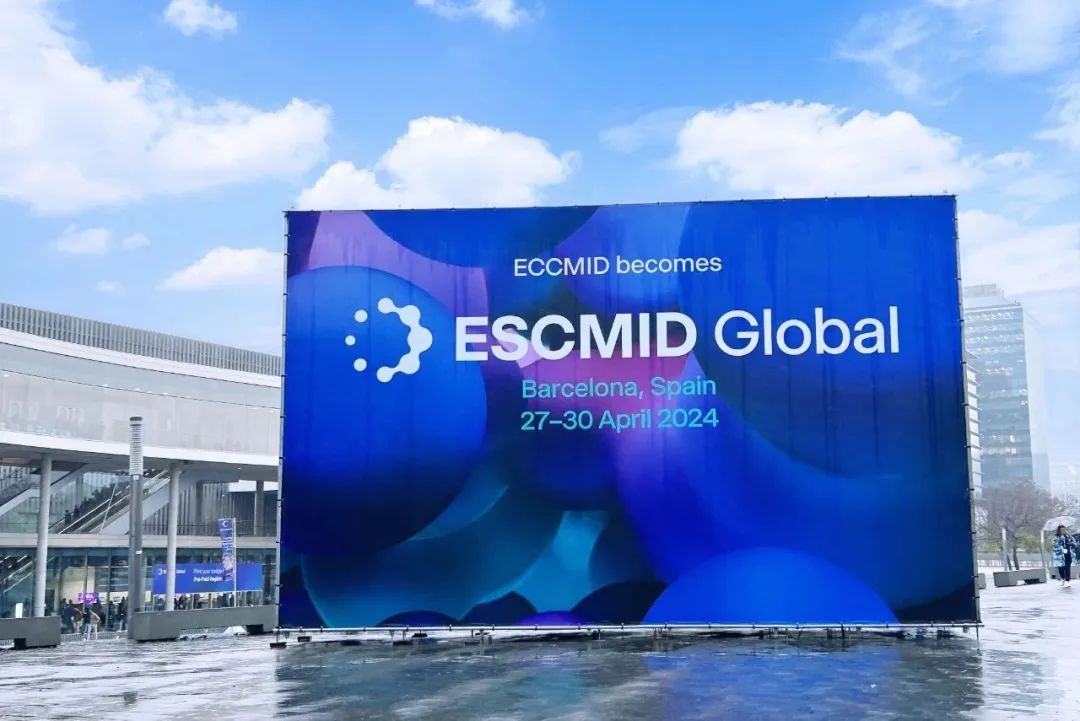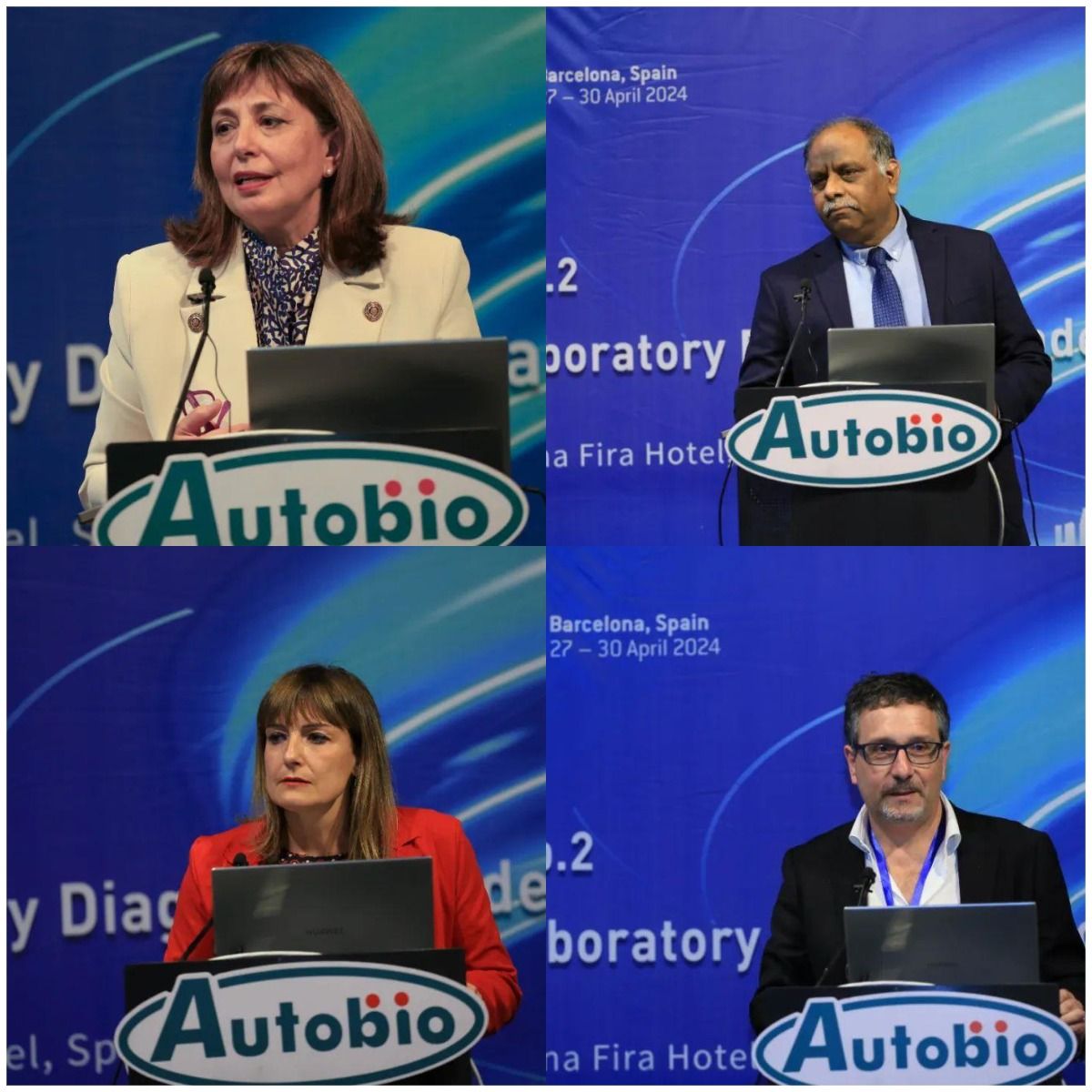

From April 27 to 30, 2024, the 34th Annual Meeting of the European Society for Clinical Microbiology and Infectious Diseases (ESCMID Global) was held in Barcelona, Spain. As a world-renowned top event in the fields of clinical microbiology, infectious diseases and infection control, ESCMID Global is committed to creating a platform for academic exchanges and scientific research sharing for clinicians, microbiology and immunology experts, scholars and medical workers around the world. The conference brought together top experts and scholars in the field of microbiology and infectious diseases around the world to discuss cutting-edge technologies and the latest research results in the field of microbiology and infectious diseases.
Taking this opportunity, Autobio successfully held the second European BioMinds Talk 2.0 Microbiology Laboratory Inspection Academic Conference. The conference invited four experts with a high reputation in the field of microbiology to share their practical experience and insights in microbial identification using the fully automatic microbial mass spectrometer Autof MS. The conference attracted nearly 100 experts and scholars in the industry to conduct in-depth and extensive exchanges on the future technological development of microbial laboratories.

Professor Georgia Vrioni, President of the Greek Society of Medical Mycology, shared her experience in using microbial mass spectrometers at the conference. She mentioned that mass spectrometers have significant advantages in the field of microbial identification and can accurately and efficiently identify various types of microorganisms. She called on more institutions to actively adopt this innovative technology, jointly promote its progress, and expand it to a wider range of applications.
Balaji Veeraraghavan, Professor of Microbiology at Christian Medical College in India, emphasized the excellent performance of mass spectrometers in India's varied and complex microbial environment. He pointed out that microbial mass spectrometers play an important role in clinical diagnosis with their fast and accurate identification results, and provide great help in drug resistance monitoring.
Professor Elena De Carolis, Director of the Fungal Laboratory of A. Gemelli Hospital in Italy, shared her latest research results in the field of fungal identification. She mentioned that microbial mass spectrometers provide strong technical support for the rapid and accurate identification of fungi, and the rich fungal database and convenient and fast identification process have greatly improved the accuracy and detection efficiency of fungal identification.
Dr. Gianluca Foglietta, a member of the Society of Clinical Pathology and Laboratory Medicine of Rome Children's Hospital, Italy shared his case of using microbial mass spectrometers for drug sensitivity monitoring, which significantly shortened the time for generating drug sensitivity reports. He said that microbial mass spectrometry provides valuable support for the hospital's testing work with its excellent high sensitivity, high accuracy and convenient operation. Dr. Foglietta firmly believes that this technology will promote the development of microbial testing technology, and looks forward to continuing to cooperate with Autobio to jointly explore the wider application of mass spectrometers in the medical field.
During the meeting, Autobio participated in the exhibition with its overall microbial solution. With more than 20 years of accumulation, Autobio has advantages in microbial culture, identification, and drug sensitivity, and launched the "Microbial Laboratory Management System", which realizes the seamless connection of microbial detection data in various processes and can provide a series of solutions for clinical microbial testing.
At present, the level of automation before clinical microbial testing and analysis is still relatively low. In order to improve the level of automation, shorten the TAT time, and reduce the biosafety risk of operators, Autobio has launched the microbial sample pretreatment system AutoStreak S1800 and released it at this exhibition. This product is an automated bacterial inoculation system for streaking finished plate culture media, which can replace the cumbersome and complicated manual plate inoculation process and provide fast and standardized bacterial inoculation results. The system innovatively realizes the automated quantitative and homogenized processing of sputum samples, as well as automatic streaking inoculation. At the same time, it is also compatible with the processing of urine, cerebrospinal fluid, alveolar lavage fluid, pleural effusion, ascites and other samples.
Once the series of microbial overall solutions were unveiled at the Autobio booth, they attracted many participants to stop and visit. Through interaction and communication with the international business team, they deeply understood Autobio's latest technological achievements in the field of microorganisms.
Autobio adheres to the purpose of being "committed to the promotion and advancement of medical laboratory technology, dedicated to serving human healthcare", and will continue to increase investment in scientific and technological innovation, enrich product lines, actively expand international markets, strengthen cooperation and exchanges with excellent foreign medical institutions, experts and scholars, and provide more comprehensive and high-quality products and services to global customers.
Address: NO.87 Jingbei Yi Rd, National Eco&Tech Zone, Zhengzhou, China
Email: info@autobio-diagnostics.com Tel: +86-371-6200-7036
Autobio Copyright Reserved for ICP 18006568. All Rights Reserved.

